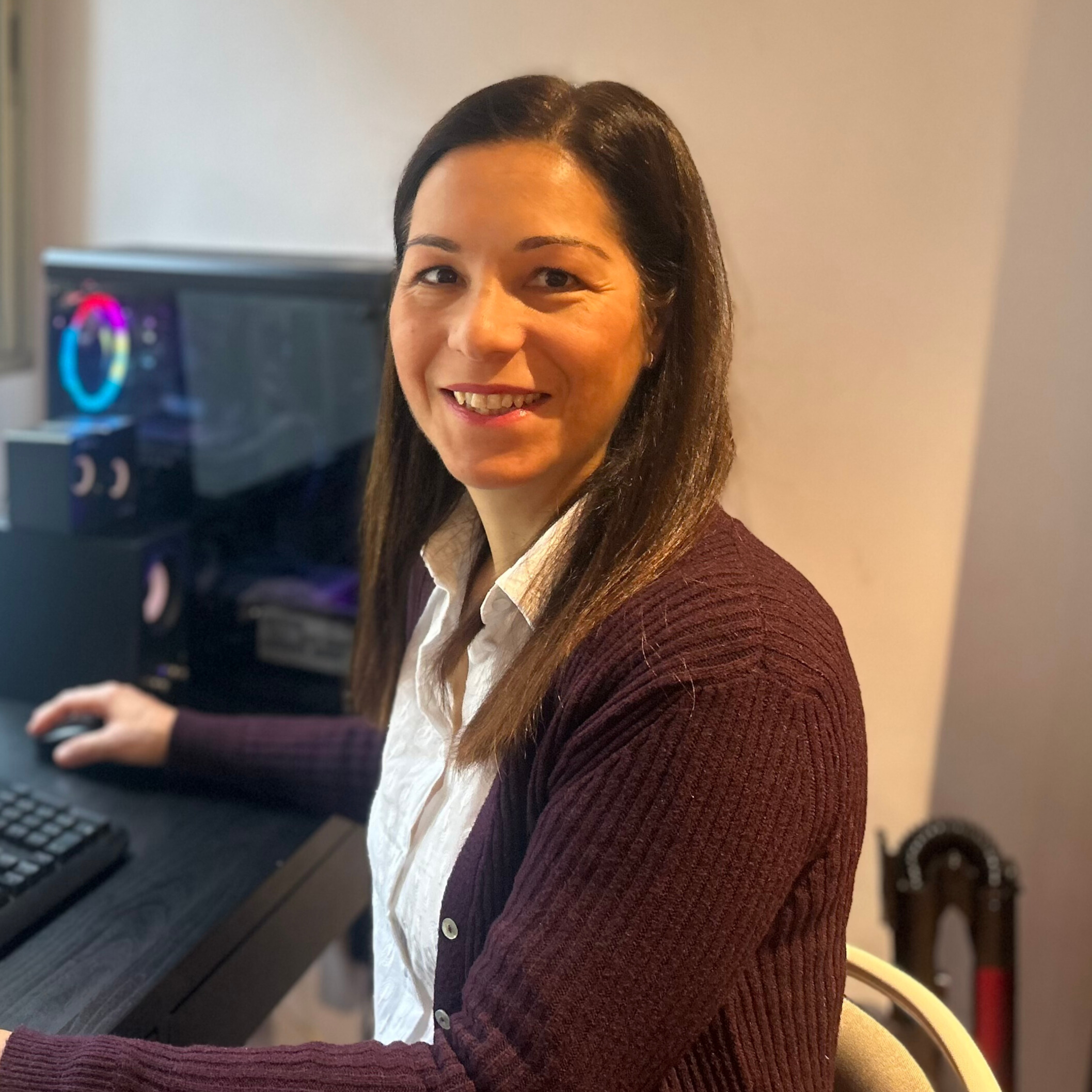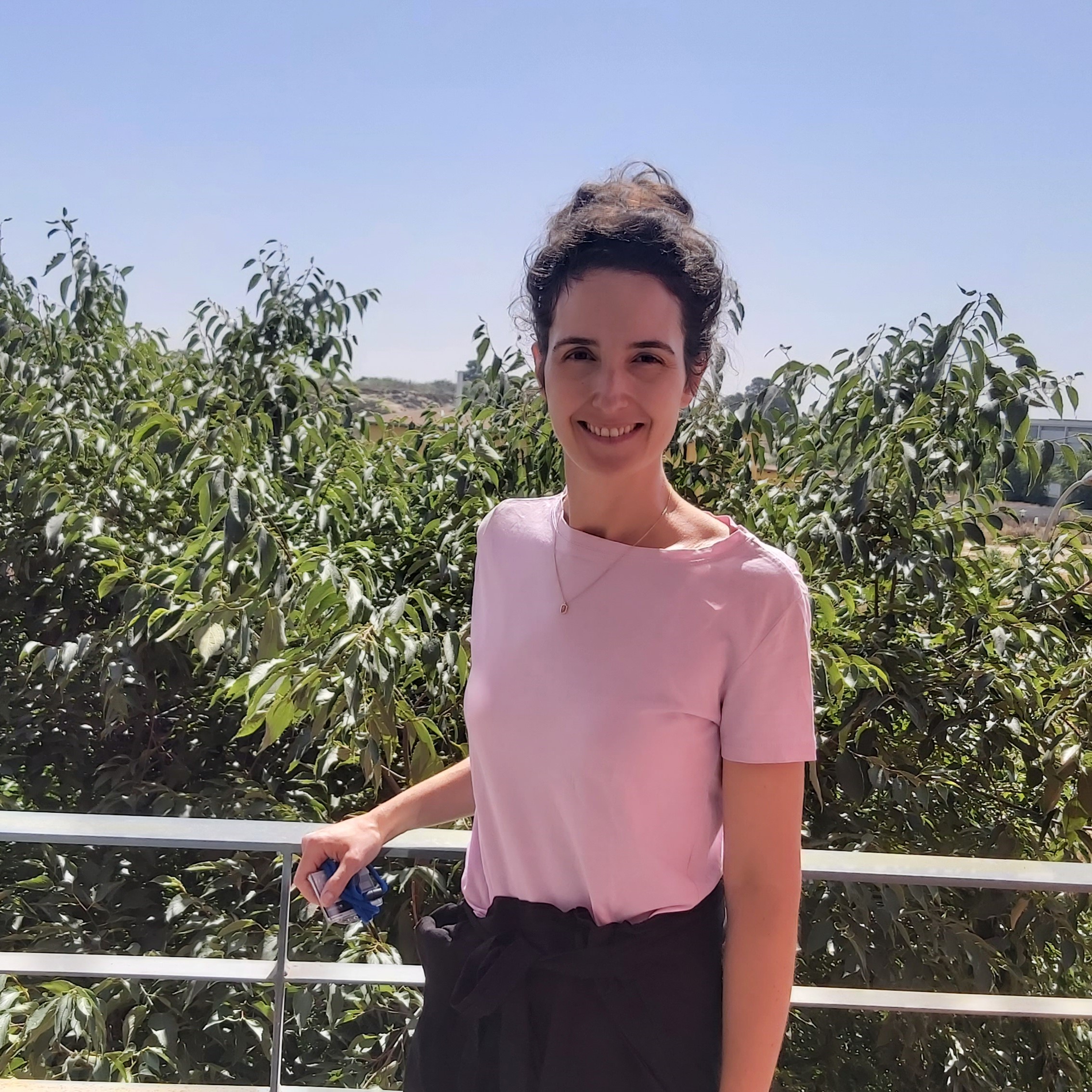
Why did you decide to go into research?
I believe my research journey began with my Ph.D., where my initial motivation was to delve into Chemical Engineering. During the completion of my thesis, I thoroughly enjoyed learning new things, which ultimately hooked me onto research. Additionally, I have always had the motivation to contribute to environmental conservation and investigate processes that tackle environmental problems. Finally, discovering and learning new things is a constant challenge for me, and that's what research offers.
Was it always clear what you wanted to do?
The truth is, I didn't always have a clear path. During high school, I enjoyed physics and chemistry subjects. The teacher of these subjects recommended to a friend and me to study engineering because they had many opportunities, so we decided to enroll in Chemical Engineering. On the other hand, I wasn't sure about going into research either, when you start university, you are very young, and I didn't contemplate whether I wanted to work in the private sector or in academia. However, when I finished my degree, I had an interest in continuing to learn, and I saw that the Ph.D. gave me that opportunity.
How long have you been linked to the I3A and what would you highlight about the Institute?
Since completing my thesis in 2010, when I had the opportunity to become a permanent member of the Institute through the director of the Thermochemical Processes Group for 40 years, Professor Rafael Bilbao, as he proposed it to me. Furthermore, since I have the opportunity, I would like to highlight how much I admired Professor Bilbao since I was his student and how important he has been to me. His example has marked me to try to be better in my work. His recent passing has filled all of us who have worked with him with deep sadness.
Regarding I3A, what stands out is that it gives you the opportunity to collaborate with research groups from other areas, allowing your research to have a broader impact. For example, with the Impulse Program, I am participating in a project on the sizing of adsorption beds for the capture of gaseous pollutants, in which a professor from the Fluid Mechanics area is also participating. This project includes an experimental part and a numerical simulation part. My work covers the experimental part, but I could not have carried out the numerical part without the collaboration of the fluid mechanics professor. These collaborations among I3A members give a lot of value because it allows you to work interdisciplinary. Additionally, in daily work, the Institute has administrative and IT staff who make your work much easier.
In your research group, what are your most important lines or areas of work?
The Thermochemical Processes Group has two major lines of research. On the one hand, the conversion of fuels and the minimization of pollutants derived from their combustion. On the other hand, the valorization of waste and obtaining products from bio-products and biofuels, which is where my lines of work would fit.
Right now, I am working on projects related to improving the management of slurry from an environmental perspective, as many current slurry management practices involve significant problems of soil, water, and atmospheric pollution. We are trying to find alternative management methods that are more sustainable than current ones and allow us to recover energy and nutrients.
Do you have any ongoing projects that you would like to highlight?
I would highlight everything related to the capture of ammonia and/or its sustainable production. Ammonia is an essential chemical product in today's society, as it is the basis of synthetic fertilizers that allow us to achieve high agricultural production quotas to obtain food for the growing world population. Its production is highly costly because it requires a lot of natural gas and energy, so producing it in a more sustainable way would be a significant breakthrough.
On the other side, ammonia is an atmospheric pollutant emitted in enormous quantities during its decomposition, so capturing it in a way that allows its subsequent use would be doubly beneficial, first because it would not be emitted, and second because it could replace the ammonia currently synthesized in the industry.
How do you see the future of your research area, and are there any trends or challenges that you find particularly interesting or important?
Certainly, it would be important to develop robust and simple technologies that can be used on farms to take advantage of slurry.
Another challenge that comes to mind is related to the production of biofuels through the pyrolysis of lignocellulosic biomass, which is another important research line in the Thermochemical Processes Group. The composition of the fuels obtained by this process is not exactly the same as that of those derived from petroleum. The main difference is that the first one has a high oxygen content, which gives them different properties and makes them immiscible with each other. In the Thermochemical Processes Group, we are studying hydrogen pressure treatments to eliminate it. A great challenge, but if it were achieved, a large part of the fossil origin fuels we currently use could be replaced.
What do you enjoy most about your profession? And what do you enjoy least?
Experimental work is what I enjoy the most and, at the same time, what frustrates me the most. Despite all the work involved, sometimes experiments do not go well, and that is genuinely frustrating. However, when experiments go well, it is very rewarding. I also really enjoy discussing and debating topics with colleagues at the Institute. Apart from research, I increasingly enjoy teaching.
What would you say to anyone thinking of going into research?
Research is a very fulfilling job because you apply the knowledge studied during your degree, and it exposes you to challenges, aspects you don't know, and you have to figure out how to solve them. In this process, you learn a lot, and you can focus your research on mitigating problems that personally concern you and represent a challenge, not only for you but for society.
CLOSE UP…
What did you study?: Chemical Engineering
A dream to fulfill: The only thing I ask the Three Wise Men is for health, which is the most important thing.
Hobbies: I play tennis; I like sports. On the other hand, I have three children and enjoy family life.
A book: Some by Julia Navarro
A film: Life is Beautiful
A series: This is us
A trip: All trips are very interesting, but if I have to highlight one, I choose Finland, where I stayed during my thesis.
How would you define yourself: I am very active; I am always doing things.
